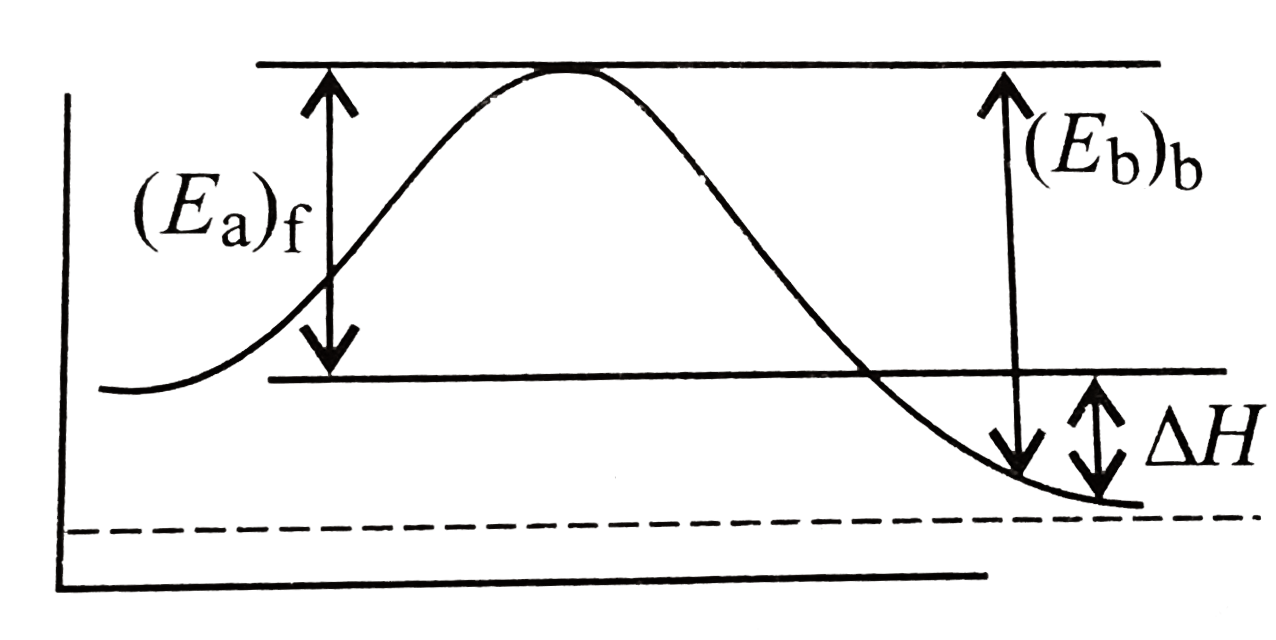For the chemical reaction X Y , the standard reaction Gibbs energy depends on temperature T (in K) as ΔrG0 ( in kJ mol−1 ) = 120−38T . The major component of the reaction mixture at T is
X if T 315 K
Y if T 300 K
Y if T 280 K
X if T 350 K
The correct Answer is:A
ΔrG∘=120∘−38T⇒ For ΔrG∘=0,T=320k
Above 320k,ΔrG∘ is - ve, major component would be Y. While below 320k,ΔrG∘ is + ve and major component would be x.
Topper's Solved these Questions
- CHEMICAL KINETICS BOOK - VMC MODULES ENGLISHCHAPTER - CHEMICAL KINETICS EXERCISE - JEE Advanced (Archive)
52 Videos
- CHEMICAL KINETICS BOOK - VMC MODULES ENGLISHCHAPTER - CHEMICAL KINETICS EXERCISE - Level-2 ( Numerical Value Type for JEE Main )
15 Videos
- CHEMICAL EQUILIBRIUMBOOK - VMC MODULES ENGLISHCHAPTER - CHEMICAL EQUILIBRIUMEXERCISE - IN-CHAPTER EXERCISE - G
10 Videos
- CHEMICAL THERMODYNAMICS BOOK - VMC MODULES ENGLISHCHAPTER - CHEMICAL THERMODYNAMICS EXERCISE - IN - CHAPTER EXERCISE - L
10 Videos
Similar Questions
The standard reaction Gibbs energy for a temperature T is given by
ΔrG∘=A−Bt
Where A and B are non-zero constants.
Which of the following is TRUE about this reaction ?
View SolutionThe standard reaction Gibbs energy for a temperature T is given by
ΔrG∘=A−Bt
Where A and B are non-zero constants.
Which of the following is TRUE about this reaction ?
View SolutionWhich of the following can help to predict the rate of reaction if the standard Gibb's free energy of reaction (ΔrG∘) is known ?
View SolutionThe activation energy for the forward reaction X→Y is 60kJmol−1 and ΔH is −20kJmol−1. The activation energy for the reverse reaction is
View SolutionIn an exothermic reaction X→Y, the activation energy is 100kJmol−1 of X. The enthalphy of the reaction is −140kJmol−1. The activation energy of the reverse reaction Y→X is

View SolutionFor a certain reaction the variation of rate constant with temperature is given by the equation
lnkt=lnk0+(ln3)t10(t≥0∘C)
The value of temperature coefficient of the reaction is
View SolutionFor a certain reaction the variation of rate constant with temperature is given by the equation
lnkt=lnk0+(ln3)t10(t≥0∘C)
The value of temperature coefficient of the reaction is
View SolutionThe activation energy for most of the reaction is approximately 50kJmol−1. The rate for temperature coefficient for such reaction will be
View SolutionStatement -1: For every chmical reaction at equilibrium , standard Gidds energy of reaction is zero
Statement-2: At constant temperature and pressure , chemical reactions are spontaneious in the direction of decreasing gibbs energy.
View SolutionVan't Hoff's equation for a chemical reaction under equilibrium is given by standard reaction enthalpy at temperature T and K is the equilibrium constant . Predict how K will vary with temperature for an exothermic
View Solution
